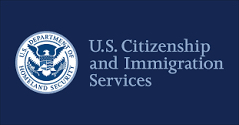By Greg Siskind
On January 31, 2019, US Citizenship and Immigration Services issued a final rule implementing a major change to the H-1B visa system – the creation of a new online pre-registration system that will choose who wins the H-1B “lottery” first and then allow selected petitioners to file a full H-1B application. The current system requires petitioners to file a complete H-1B petition at the outset and then hope for selection in the H-1B lottery.
USCIS elected not to apply the rule to the 2020 fiscal year which required applications to be submitted during the first week of April 2019. The agency determined it was not yet ready so employers filed using the longstanding system of submitting complete applications. Representatives of USCIS have indicated on multiple occasions that they are moving full steam ahead with having the pre-registration system in place for the application period that will be coming up in April 2020. However, USCIS Director Ken Cuccinelli told an audience of human resource professionals that the agency is still evaluating the software and testing it with employers and immigration lawyers and would make a final decision on whether to use the electronic system before the end of 2019. That would allow employers enough time to be ready to file complete petitions in April should that be necessary.
The January 2019 rule also changed the H-1B lottery system in another key respect. There are two quotas for H-1B visas – a “regular” H-1B quota of 65,000 for all H-1B applicants and an “advanced degree” quota of 20,000 for individuals with master’s degrees or higher from a US university. Under the pre-2019 system, the advance degree lottery was held first and those not selected were automatically entered in the regular lottery. Under the new rule, the lotteries are reversed. The regular lottery is held first and includes those who qualify for the advance degree lottery. After that, the advance degree lottery is held. This reversal improves the odds of someone with an advance degree from a US graduate school program being selected. USCIS believes that the change will result in an increase of up to 16% (or 5,340 workers) in the number of master’s degree or higher recipients from US schools qualifying for the H-1B.
As envisioned under the registration program, a petitioning employer would be required to provide basic information on the intended H-1B petition, including information on the job, the employer and the employee. If a petition is selected, the employer will be invited to file a full H-1B petition on behalf of the selected applicant within 90 days of being selected.
Originally, it was anticipated employers would not pay a fee to participate in the pre-registration process. Recently, however, USCIS published a proposed rule which would require a $10 pre-registration fee for each H-1B cap case filed in the pre-registration process.
Employers will need to make various attestations including that they intend to file an H-1B petition. Originally it was envisioned that petitioners would need to file separate registrations for each intended beneficiary per fiscal year. Under the latest proposed design, employers can list multiple beneficiaries in the same registration. If a beneficiary is selected, the employer will be granted permission to file an H-1B petition within a designated filing period which will be for at least 90 days.
The electronic registration program may be viewed as a Trump Administration idea, but it was actually introduced as a proposed rule in 2011, but USCIS chose at the time not to pursue it.
The obvious benefit of the new rule is that employers will not have to waste money going through a full application process and they will learn almost immediately if they’ve been selected.
Opponents of the program have raised a number of concerns, however. First, employers who are selected will end up spending more money on their cases because the pre-registration process is not as simple as people think and it adds a new legal cost to the process.
Second, some believe employers will be incentivized to register as many petitions as possible and many will either not qualify for an H-1B or end up being abandoned.
The reversing of the H-1B lotteries also is not without critics. Certain occupations like schoolteachers, accounting and architecture will be disadvantaged. Physicians will also be adversely impacted because their degrees are obtained outside the US and they will only be eligible for the regular lottery.
What perhaps worries immigration lawyers and employers most is USCIS not making a decision before the end of 2019 and forcing lawyers and employers to prepare full applications only to have to abandon them for the registration program. Employers would end up preparing many more full applications than they otherwise would plus end up paying the extra costs associated with submitting applications in the registration program.

Siskind Susser, PC
Immigration Lawyers
[email protected]
www.visalaw.com
